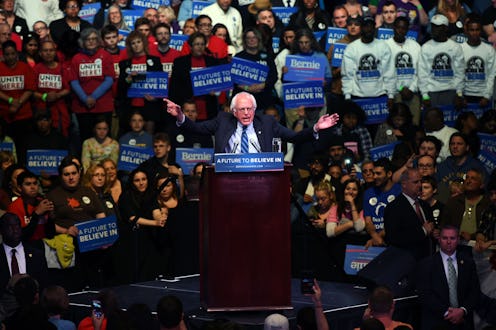News
WV Still Matters Even This Far In The Race
The West Virginia primary is the next contest in this election season, taking place on Tuesday. With just a few primaries left for both parties, the U.S. is getting closer and closer to determining who will be running in the general election. As the race for delegates continues, is the West Virginia primary winner-take-all?
West Virginia holds 34 delegates for the GOP. And yes, these numbers still matter, because even though businessman Donald Trump is the party's last candidate standing, he still needs to get 1,237 delegates to solidify the nomination before the convention. The state has 37 total delegates for Democratic candidates, and though it's not a lot, every delegate matters for the Democrats, and especially for Vermont Sen. Bernie Sanders.
Of the 37 Democratic delegates, 29 of them are pledged and allocated to candidates on a proportional basis. Twenty of the pledged delegates are allocated based on results in West Virginia's congressional districts, and the rest are allocated based on the statewide vote. The remaining eight delegates are unpledged National Convention delegates — otherwise known as superdelegates. West Virginia's superdelegates include Sen. Joe Manchin, Gov. Earl Ray Tomblin, State Democratic Party Chairwoman Belinda Biafore, Vice Chairman Chris Regan, West Virginia Secretary of State Natalie Tennant, State Treasurer John Perdue, attorney Pat Maroney, and Elaine Harris, the leader of the Communications Workers of America union. Six of them are already siding with former Sec. of State Hillary Clinton.
On the Republican side, the delegates are a little more complicated. West Virginia has 34 bound Republican delegates, but only three of them are winner-take-all based on the statewide vote. The remainder includes 22 statewide delegates and nine congressional district delegates who are all elected on the ballot, and can either be bound or unbound. The delegates who are elected on the ballot are either affiliated or not with any given candidate, and their affiliation is noted on the ballot.
West Virginia's delegate process is slightly more complicated than some other states, but it is not winner-take-all, which could be a good thing for the GOP — or at least, for those who don't want a Trump nomination. Leading into Tuesday's vote, the latest polls put Sanders ahead of Democratic frontrunner Clinton in West Virginia, with 47 percent to her 43 percent of support. On the other side, Trump is ahead in the polls with 57 percent of Republican voter support, followed by Texas Sen. Ted Cruz with 25 percent.
Tuesday will be another big day for both parties, so make sure to head to the polls if you're in West Virginia and registered to vote.
